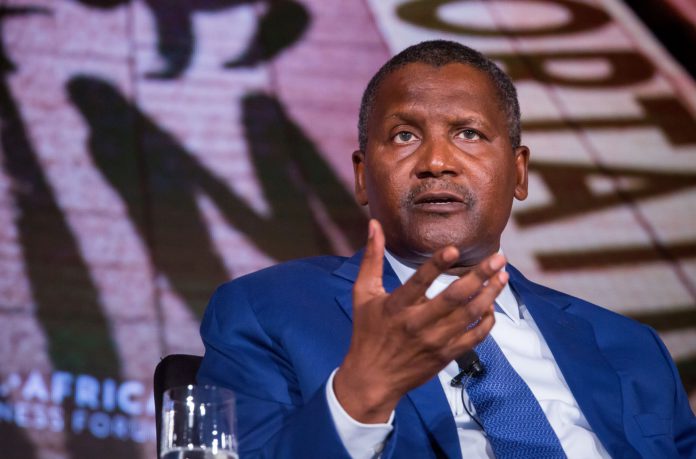Some countries in Africa are still not granting easy entry and exit for holders of the specialised passport by the African Union (AU).
This is nearly seven years after the introduction of the Africa-wide passport which is meant to remove restrictions on Africans ability to travel, work, trade and live within the 54 countries on the continent.
The phenomenon is not only impacting negatively on free movement of persons but has also failed to boost intra-African trade and investment opportunities for many African countries.
Suffering the brunt of the ineffective Africa-wide passport in three African countries, Nigerian businessman and industrialist, Aliko Dangote, who made this known at a session of the 30th Annual General Meeting (AGM) of the Afreximbank in Accra, said the situation was unfair especially when those countries have access to holders of passports issued by the European Union (EU) and the United Kingdom (UK).
Sharing personal experience
Recounting a personal experience, the industrialist decried a situation where “I have the AU passport which allows people to move around in the continent but until now there are about three countries who still do not agree to the usage of those passports.
“We go with a British guy or maybe a Nigerian holding a British passport (and) he is allowed in that country, but we are still arguing and debating about my visa and I am the one with the money. If you are making life difficult for me, there is no way I will go and invest in your country.”
Show commitment
The Chairman and Chief Executive Officer (CEO) of the Dangote Group, the largest industrial conglomerate in West Africa said it was difficult to understand why some of the countries in Africa still deny holders of the African passport entry.
He said this was in spite of the fact that the passport was supposed to ensure free movement of African citizens and goods through the union’s 54 member states.
He said there was the need for countries in the continent to show more commitment to boost intra-African trade and investment opportunities, by supporting visas on arrival for Africans.
He explained that the countries must be deliberate in liberalising integration and allow for easy entry and exit of Africans to facilitate trade.
“For me, this is the right step to help boost inter-and intra-African trade as well as investment opportunities in the continent,” he said.
“When we were investing all over Africa, we invested about $620 million in South Africa and then Angola reached out to us to channel some of our investment towards its direction but we denied them because securing visa to that country was difficult for Africans,” he said.
Free trade
Mr Dangote noted that while countries were putting stringent measures to deny access to legitimate investors, smugglers were using the porous land borders to prior their trade.
“Smugglers do not use visas, they come through the land borders but me that I am legitimate and want to invest you are harassing me. The smugglers are having free trade through the land borders as we speak,” he said.
He said after Saudi Arabia took steps to streamline their visa processes and procedures it has opened the country’s economy and now its citizens are now benefiting from tourist arrivals.
He added that the continent needs a united front to implement the African Continental Free Trade Area (AfCFTA) agreement to be able to create the largest free trade area in the world measured by the number of countries participating.

